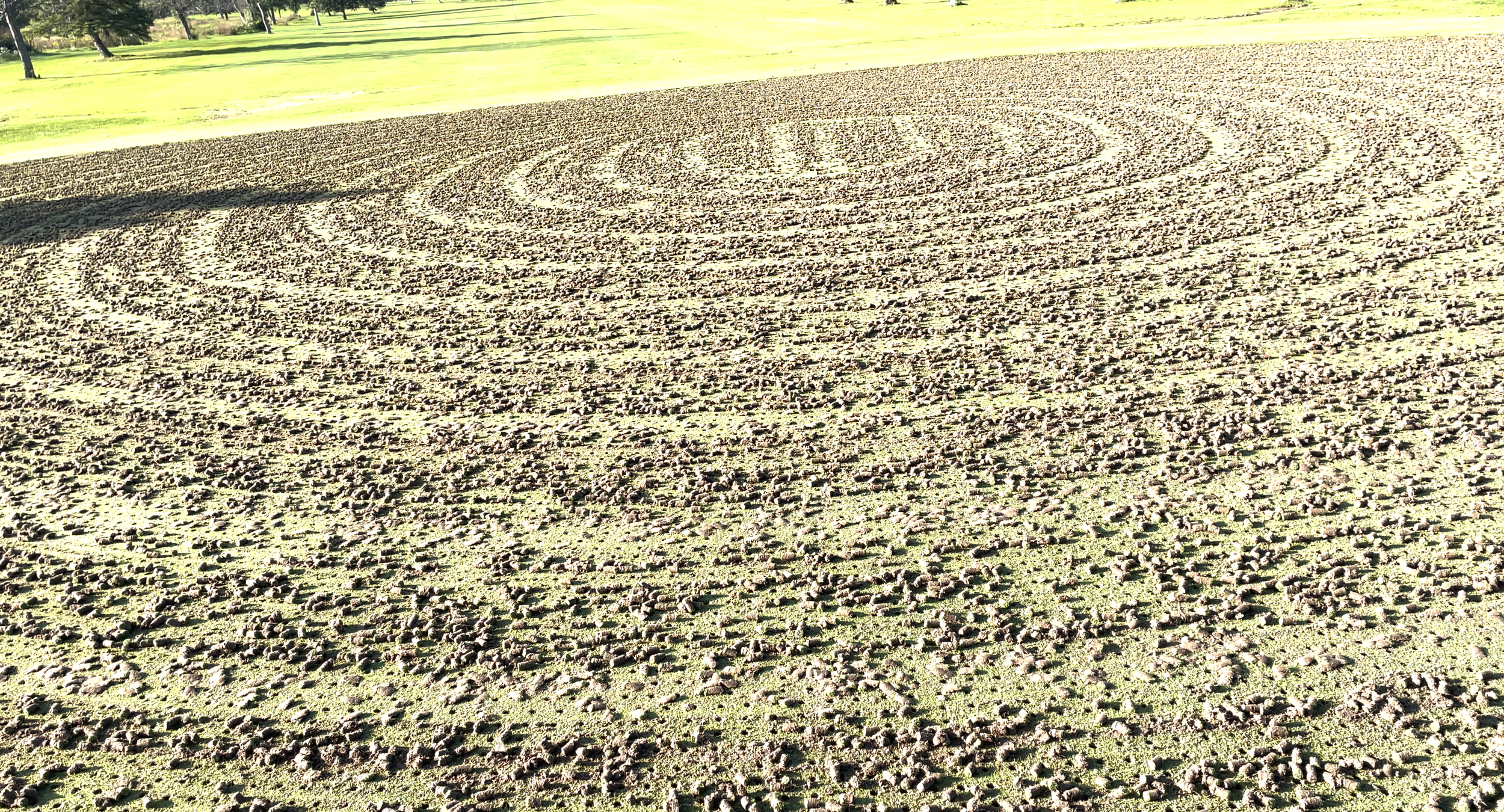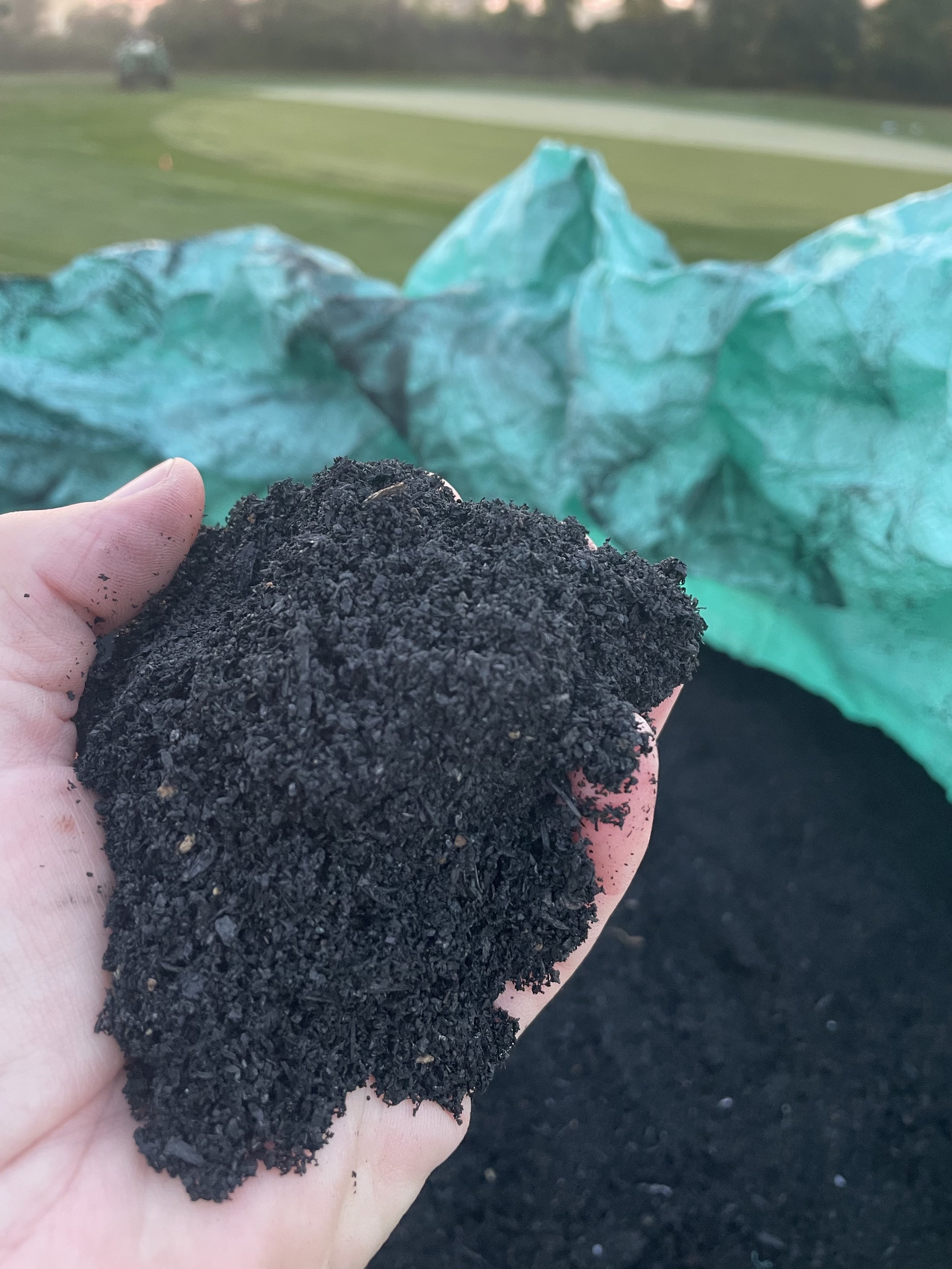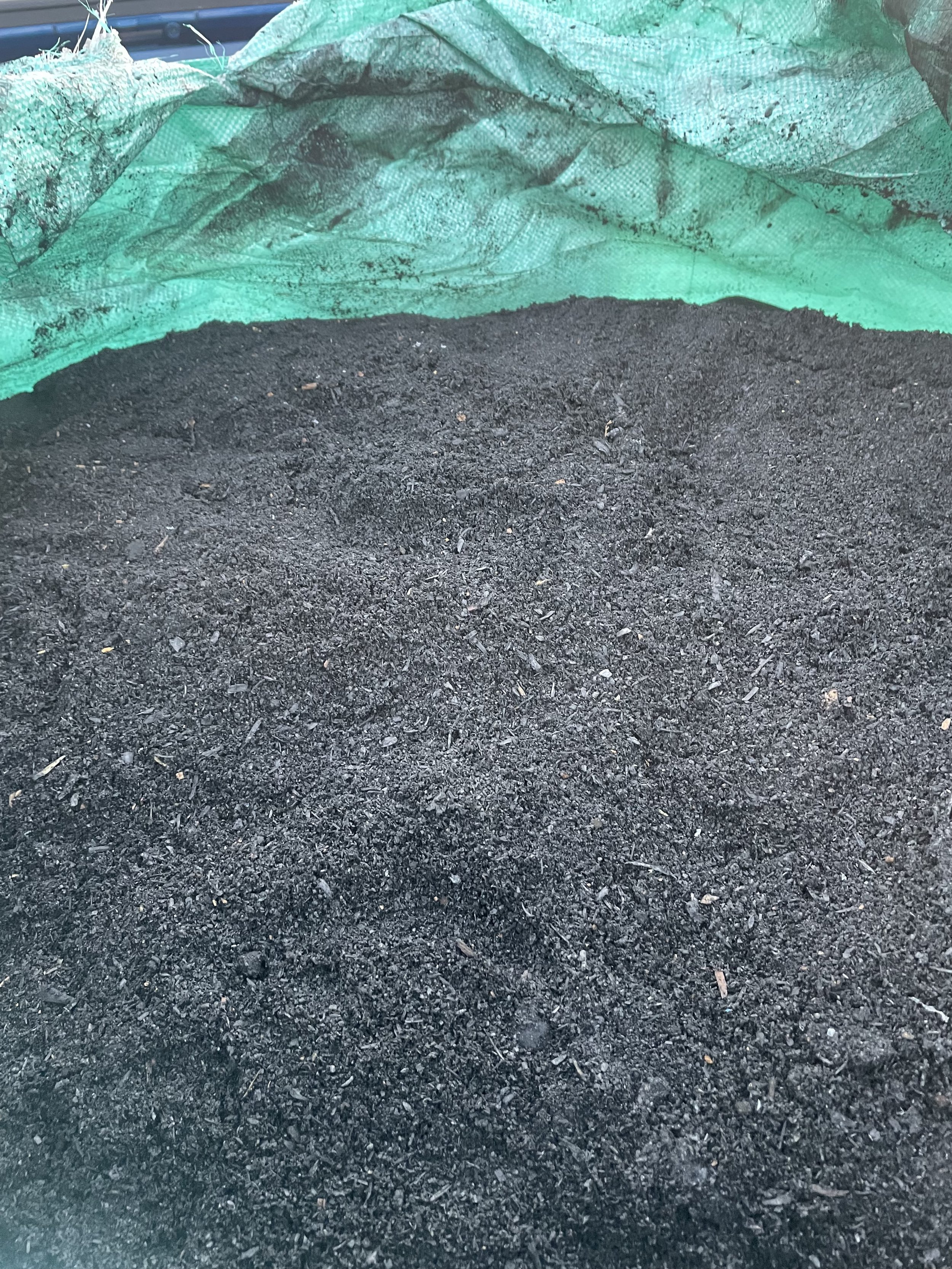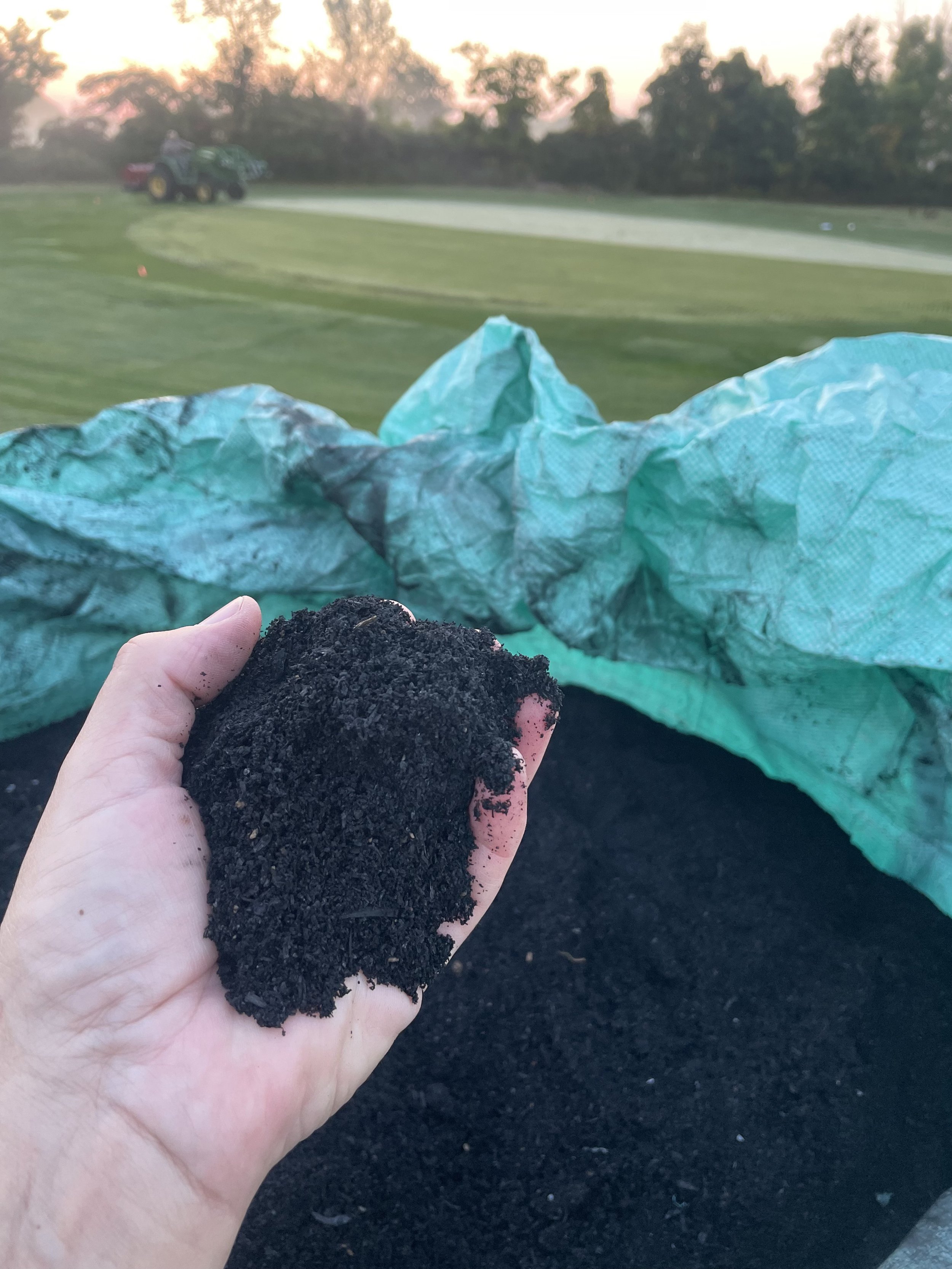Seneca Farm’s Biochar Boosts Turf Resilience at Rothland Golf Course: A Case Study
Rothland Golf Course in Akron, New York, recently implemented a biochar trial on its Red Course, with remarkable results. This study, a collaboration between Seneca Farms Biochar, AgroShield, and Rothland Golf Course, was led by course superintendent Ron Edson and highlighted biochar's ability to improve turf health and resilience, even under tough conditions, such as limited irrigation.
Edson explained, "Our irrigation pump was down, and we couldn’t water our nine-hole Red course until the start of July. Still, it held up nice and green, just as good as the other two courses that were being watered.” He also observed the biochar's impact on the course, noting, "The biochar-treated Red course seemed to snap back quicker and retain a lot more water. When I took a core sample, I could see the roots were just as deep on the red course versus the other two courses that were getting water."
Even though the Red Course lacked irrigation, its turf displayed minimal stress compared to the fully irrigated White and Gold courses. "The grass filled in from the growth spectacularly. Despite the drought, there was very little fatigue,” Edson added.
Aerification with Biochar
The aerification process for the trial involved using a John Deere 800 aerator, which pulls cores from the ground, typically filled with fertilizer and sand. Edson described how biochar was incorporated into this process: "We spread the biochar with a spreader, then added top-dressing sand and brushed it in. It was a simple procedure, and we saw fantastic results."
AgroShield’s Jeff Randall, who assisted with the trial, explained that the biochar mix used was approximately 5% biochar and 95% USGA sand. Randall noted another benefit: reduced ant infestations. "We had an ant problem on the Gold and White nine greens; however, we did not have an ant problem on the Red course greens treated with biochar. The two courses that were not treated with biochar had ants, and the one course that was treated did not. We feel confident that the carbonyl was retained in the root zone longer on the Red course."
Biochar Enhances Soil Health, Nutrient Retention, and Pest Management
The trial also provided valuable insights into biochar’s long-term benefits for soil health, nutrient retention, and water efficiency. According to Randall, biochar had a significant impact on nutrient retention, extending the effectiveness of fertilizers and insecticides. “Without the biochar, they wouldn’t have held the nutrients and water the way they did,” he said. Randall also emphasized the broader implications of biochar use: "Biochar helped retain fertilizer, fungicides, and insecticides longer than on other parts of the course."
One of the key aspects of biochar, as Rob Draxler, CTO of Seneca Farms Biochar, explained, is its unique structure. "Biochar acts as condominiums for microorganisms," Rob said, illustrating how biochar creates small micro-environments that support the development of beneficial microbial life. “So what makes biochar work so well is its very fine filtration, in very small cavities, that allow the microorganisms to move in and prosper. Then it's the relationship with the mycorrhizal that's in the ground communicating that nutrition to the rootstock of the plant. And it's just that simple, but it's all interconnected.”
This structure also helps retain water and nutrients longer, improving soil porosity and reducing chemical leaching. Randall added, “Normally, golf greens are sprayed every two weeks with fertilizers, fungicides, and insecticides. With biochar, the residual impact of these chemicals was extended, meaning the turf remained healthier for longer.”
The study showed that biochar could offer a cost-effective solution for golf courses facing irrigation challenges. By increasing soil porosity and retaining nutrients, biochar supports stronger, healthier turf, which translates to better playability and long-term course health.
Expanding Biochar Use at Rothland
The success of the Red Course trial has led Rothland Golf Course to expand biochar treatments across its White and Gold courses. "We plan to treat each of the other courses with biochar, starting with the White and then the Gold next year," Randall confirmed. Edson also expressed excitement about biochar’s future use, stating, "I’m looking forward to using biochar on our White Course next year. It’s been nothing but beneficial; I can’t say anything bad about it."
Beyond golf course maintenance, biochar's benefits extend into agriculture, where soil porosity and nutrient retention are vital. “For farmers, especially those dealing with heavy soils, porosity is key," Randall said. Biochar not only improves airspace for roots but also offers long-term benefits by supporting microbial life and holding nutrients.
The Rothland Golf Course study underscores biochar’s potential in both turf management and agriculture, showing that it can create healthier, more resilient plants by improving soil health, nutrient retention, and water efficiency. As more courses adopt biochar, Rothland is leading the way, demonstrating how this innovative product can enhance course sustainability and performance.
If you’re interested in learning more about biochar or would like to speak with an AgroShield representative, please email info@agro-shield.com.













